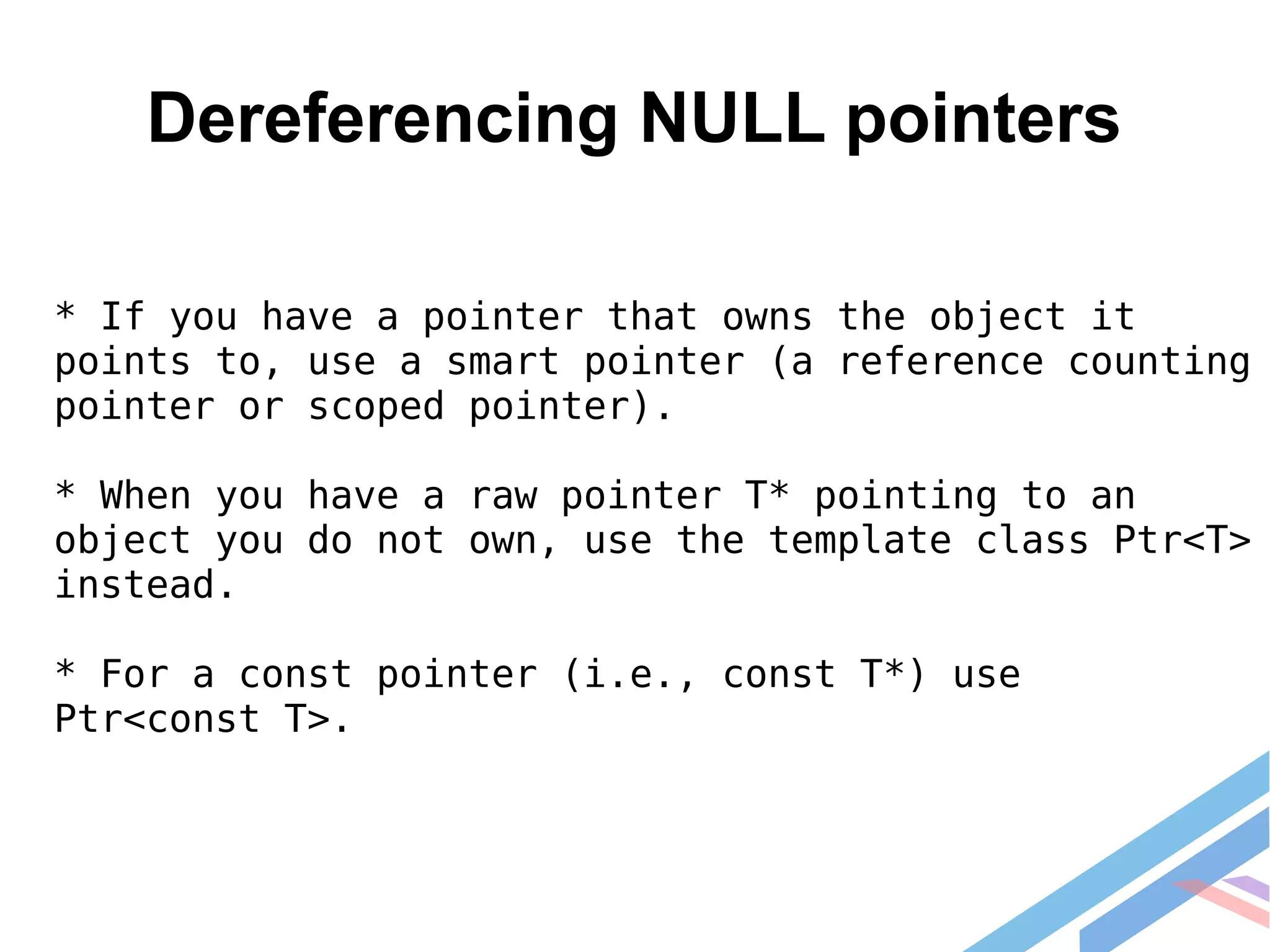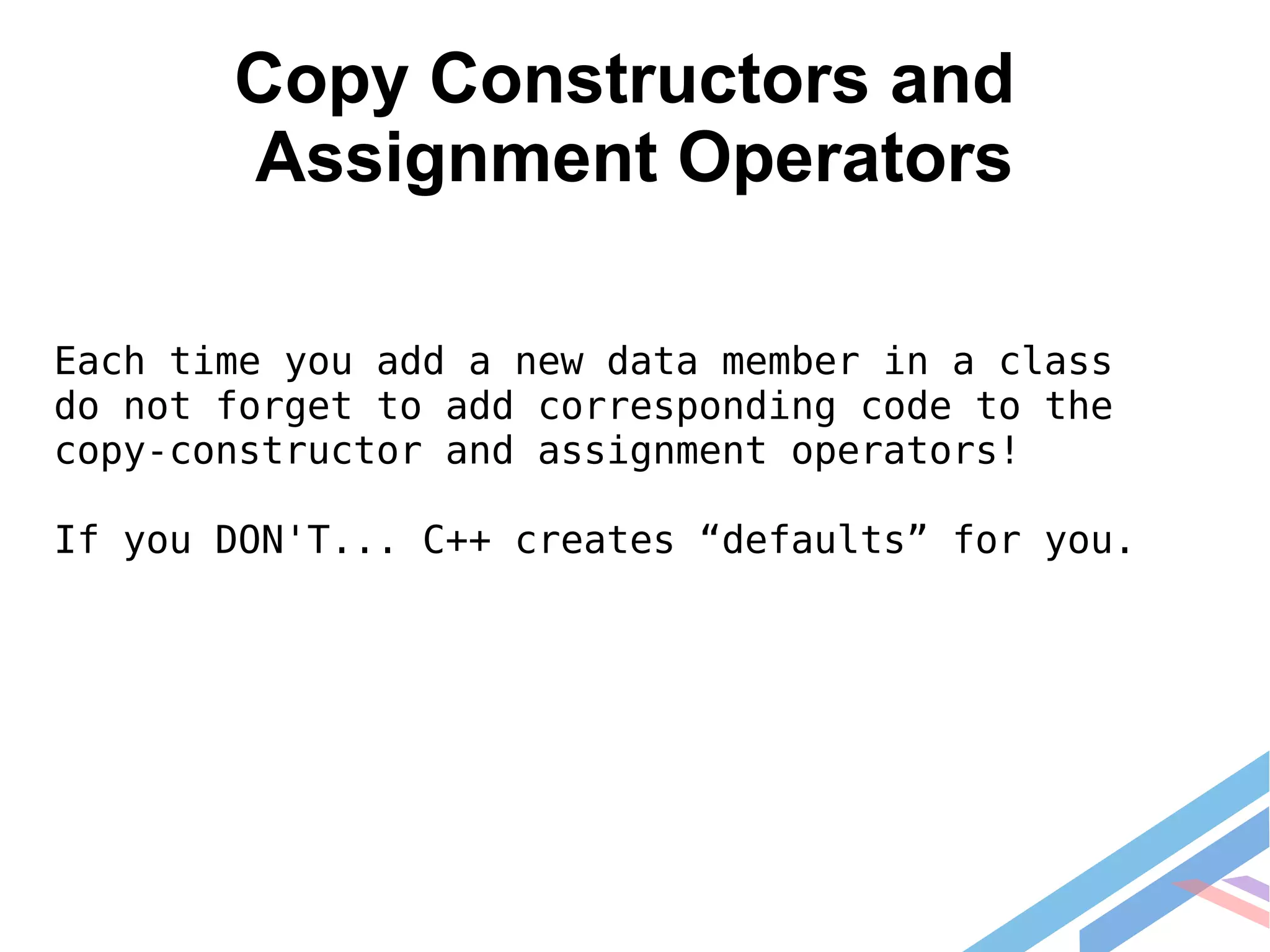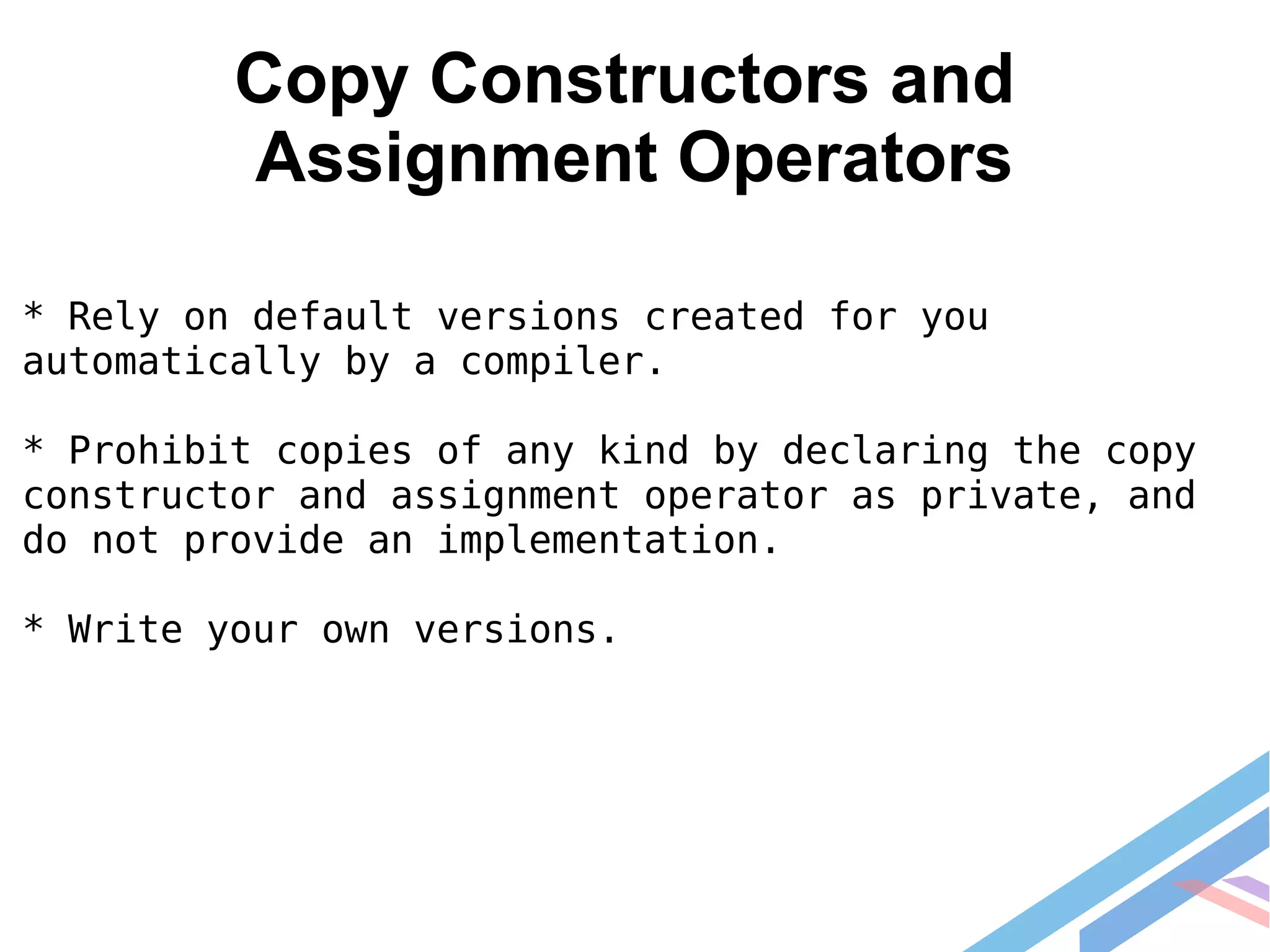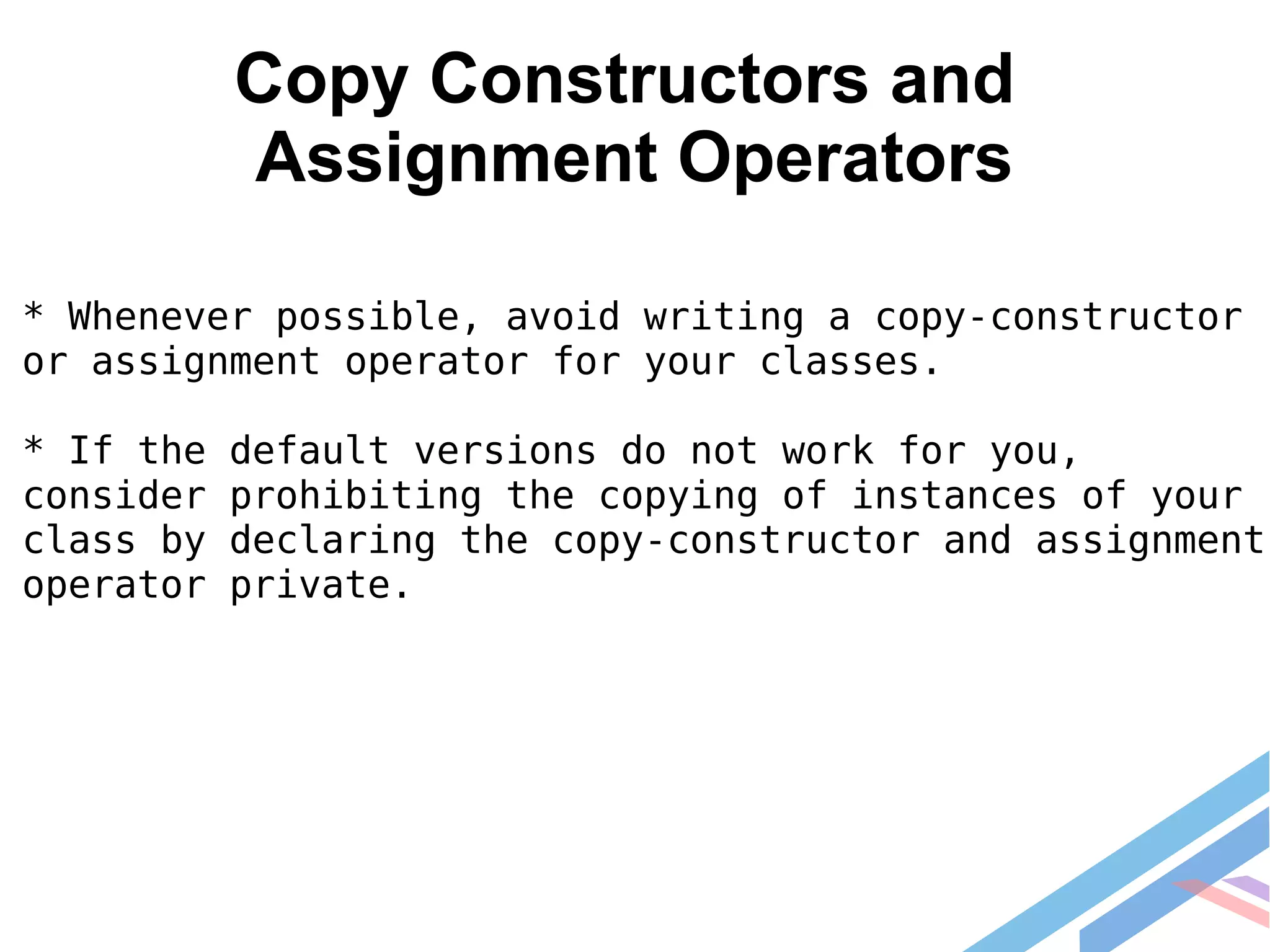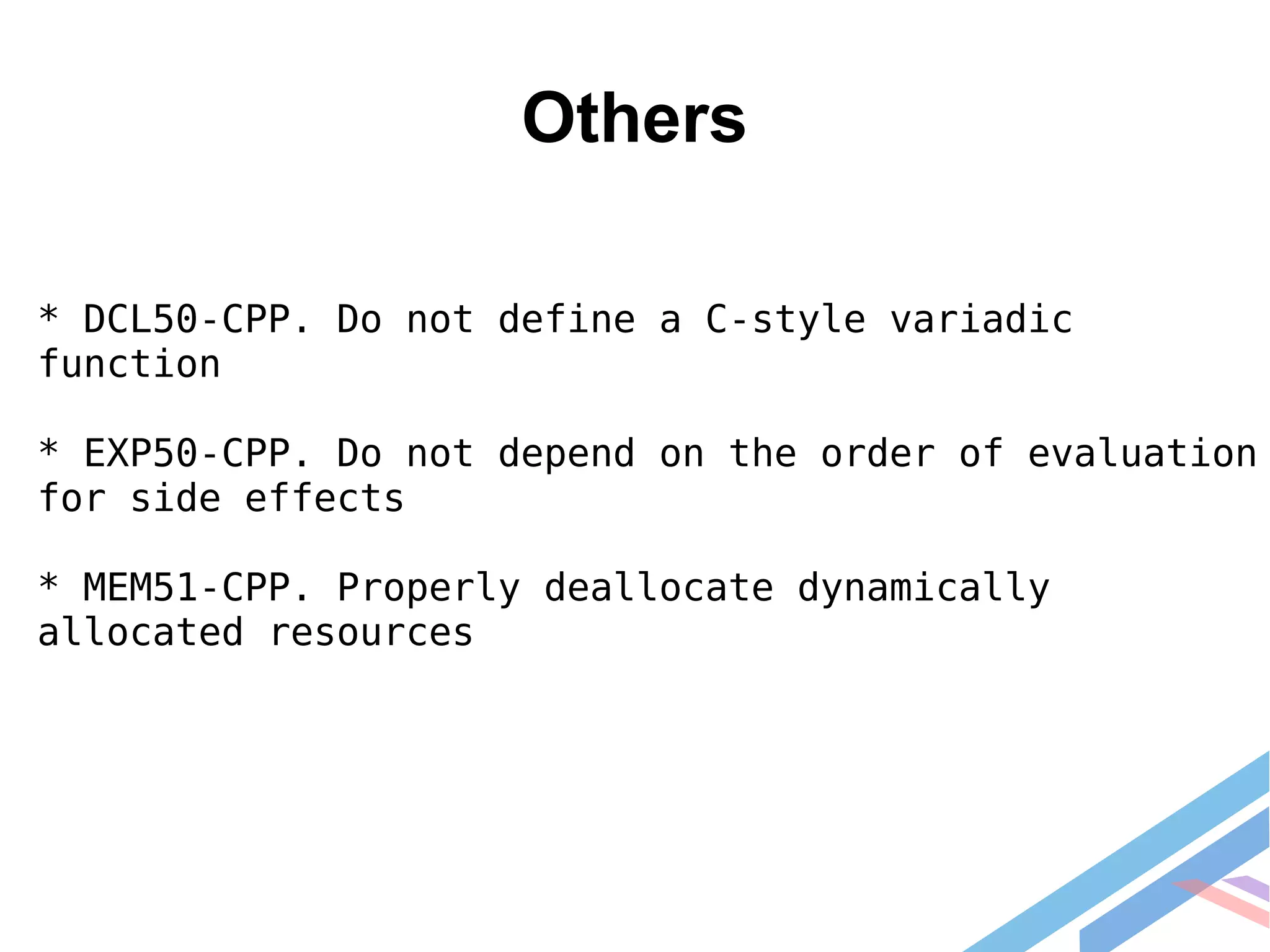The document discusses various C++ security issues and best practices for avoiding them. It covers topics like index out of bounds errors, pointer arithmetic, uninitialized variables, memory leaks, dereferencing null pointers, copy constructors and assignment operators. For each issue, it provides recommendations such as using vectors instead of arrays, avoiding pointer arithmetic, initializing variables, using smart pointers instead of raw pointers, and properly implementing copy constructors and assignment operators. The overall document provides guidance on writing more secure C++ code by avoiding common problems and vulnerabilities.
![#include <mutex>
#include <thread>
const size_t maxThreads = 10;
void do_work(size_t i, std::mutex *pm) {
std::lock_guard<std::mutex> lk(*pm);
// Access data protected by the lock.
}
void start_threads() {
std::thread threads[maxThreads];
std::mutex m;
for (size_t i = 0; i < maxThreads; ++i) {
threads[i] = std::thread(do_work, i, &m);
}
}
Writing Secure C++](https://image.slidesharecdn.com/c-180314100926/75/C-Secure-Programming-1-2048.jpg)
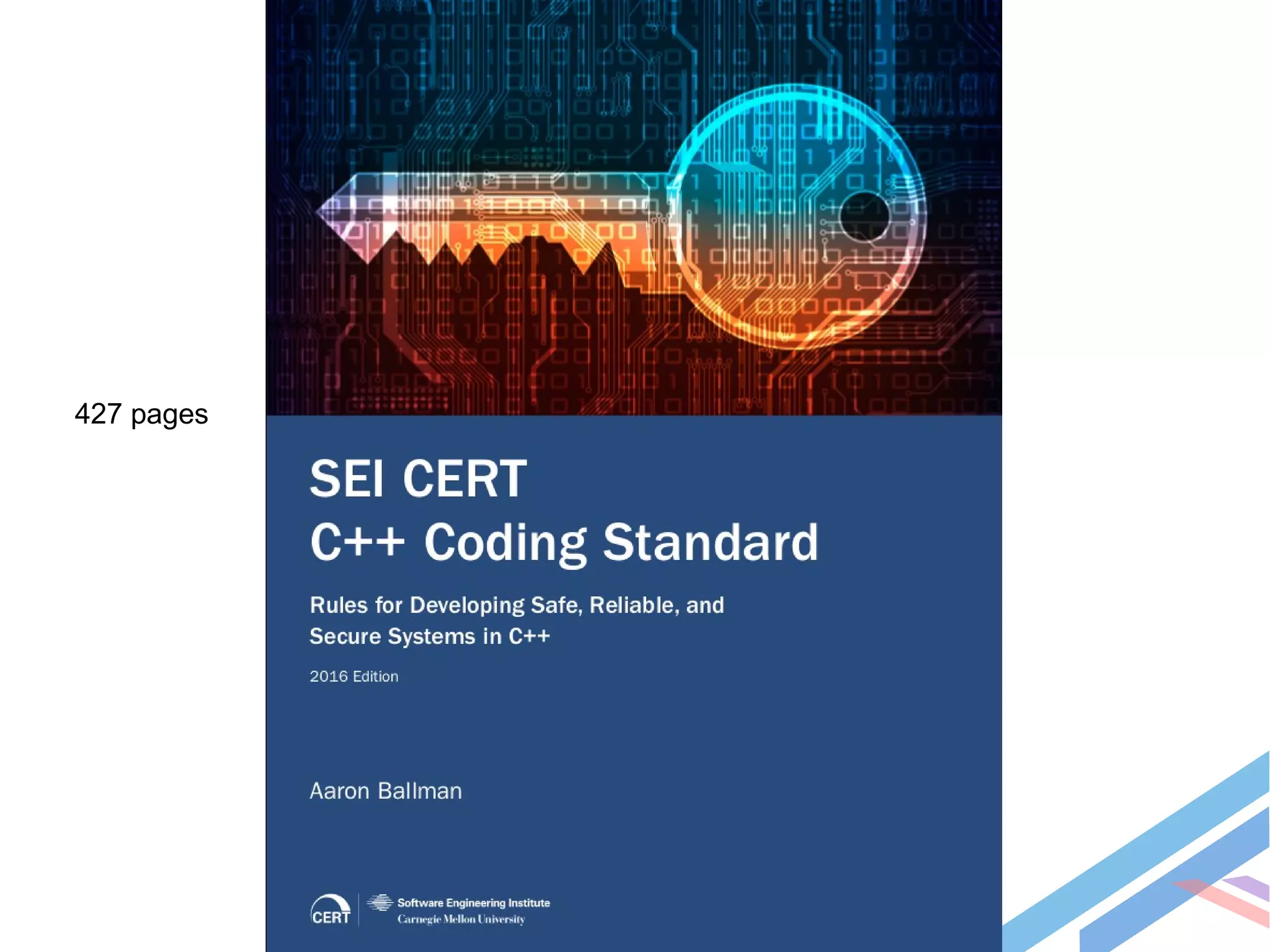

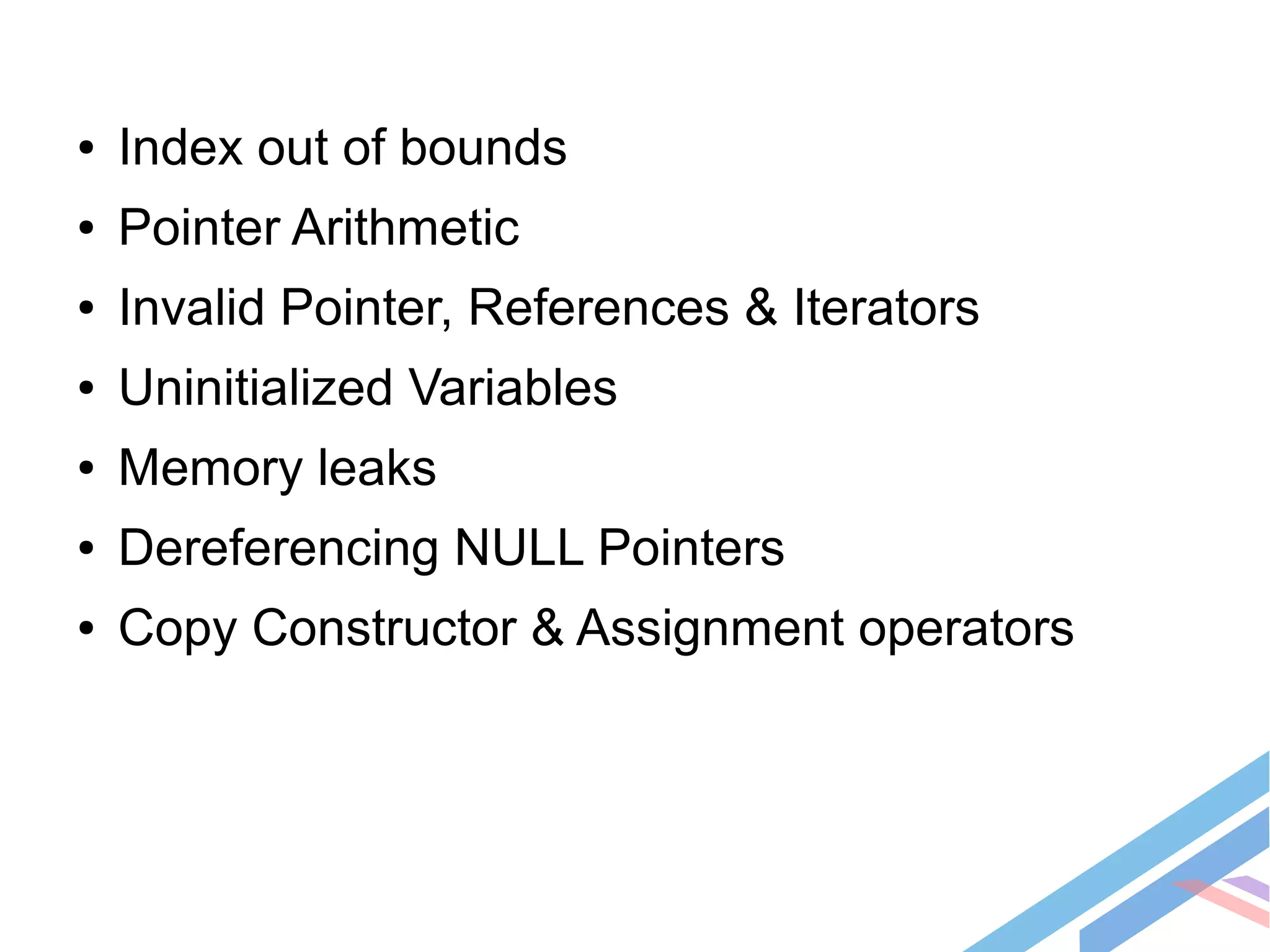
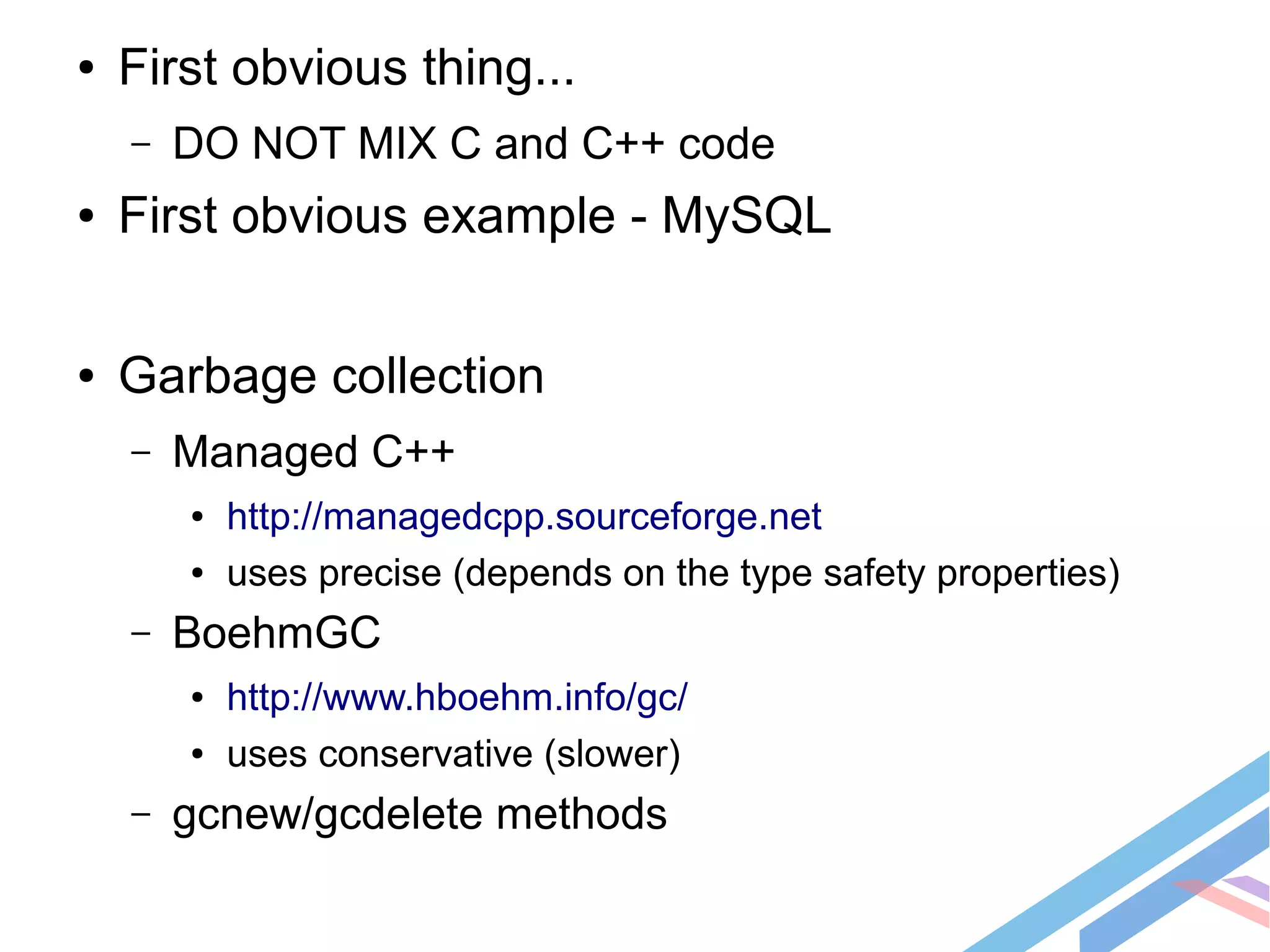
![Index out of bounds
#define N 10
T static_array[N];
int n = 20;
T* dynamic_array= new T[n];
std::vector<T> vector_array;
array[index] = x;
Safe C++ suggests:
1. overload the [] operator
2. use vectors](https://image.slidesharecdn.com/c-180314100926/75/C-Secure-Programming-6-2048.jpg)
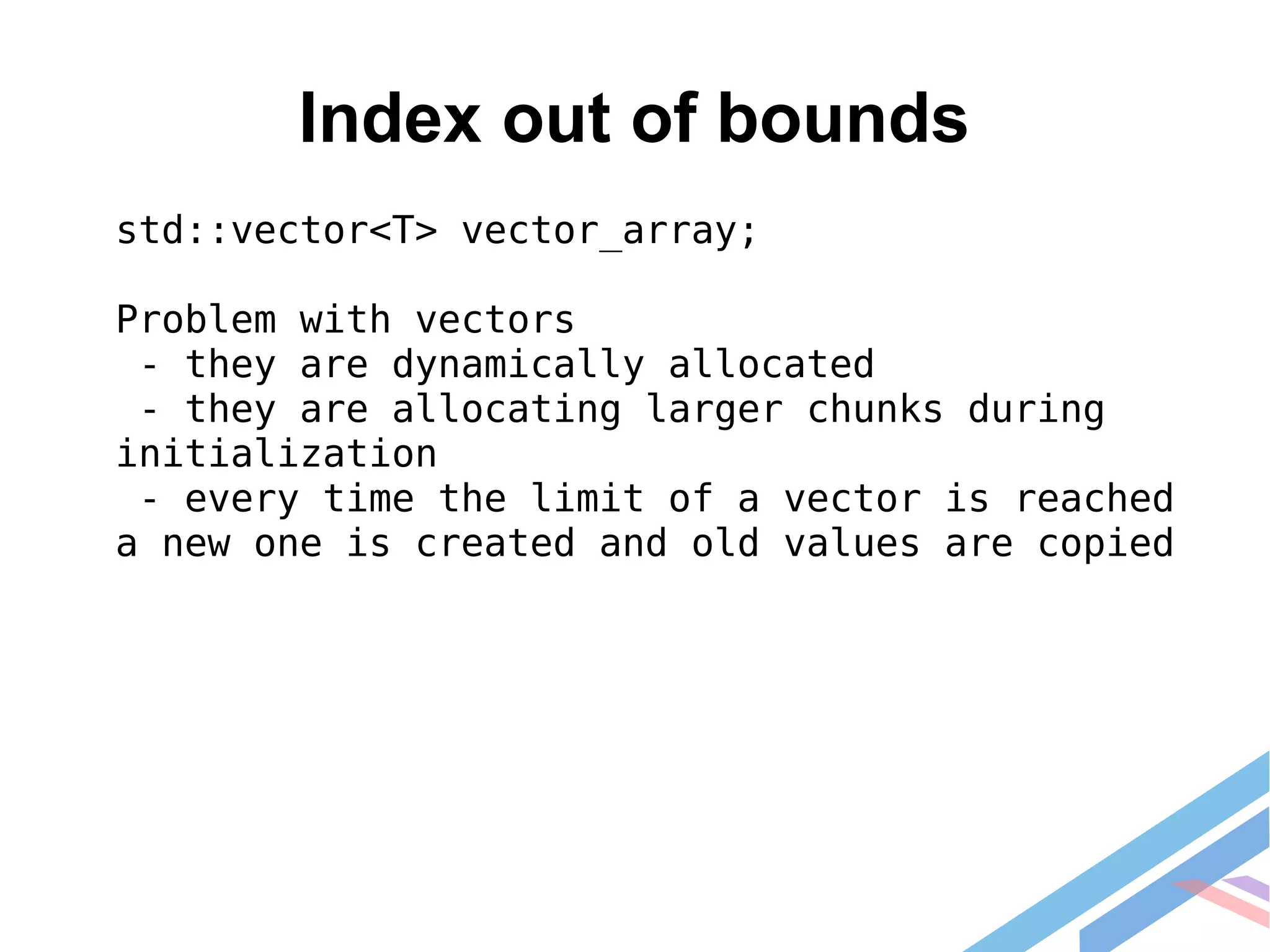
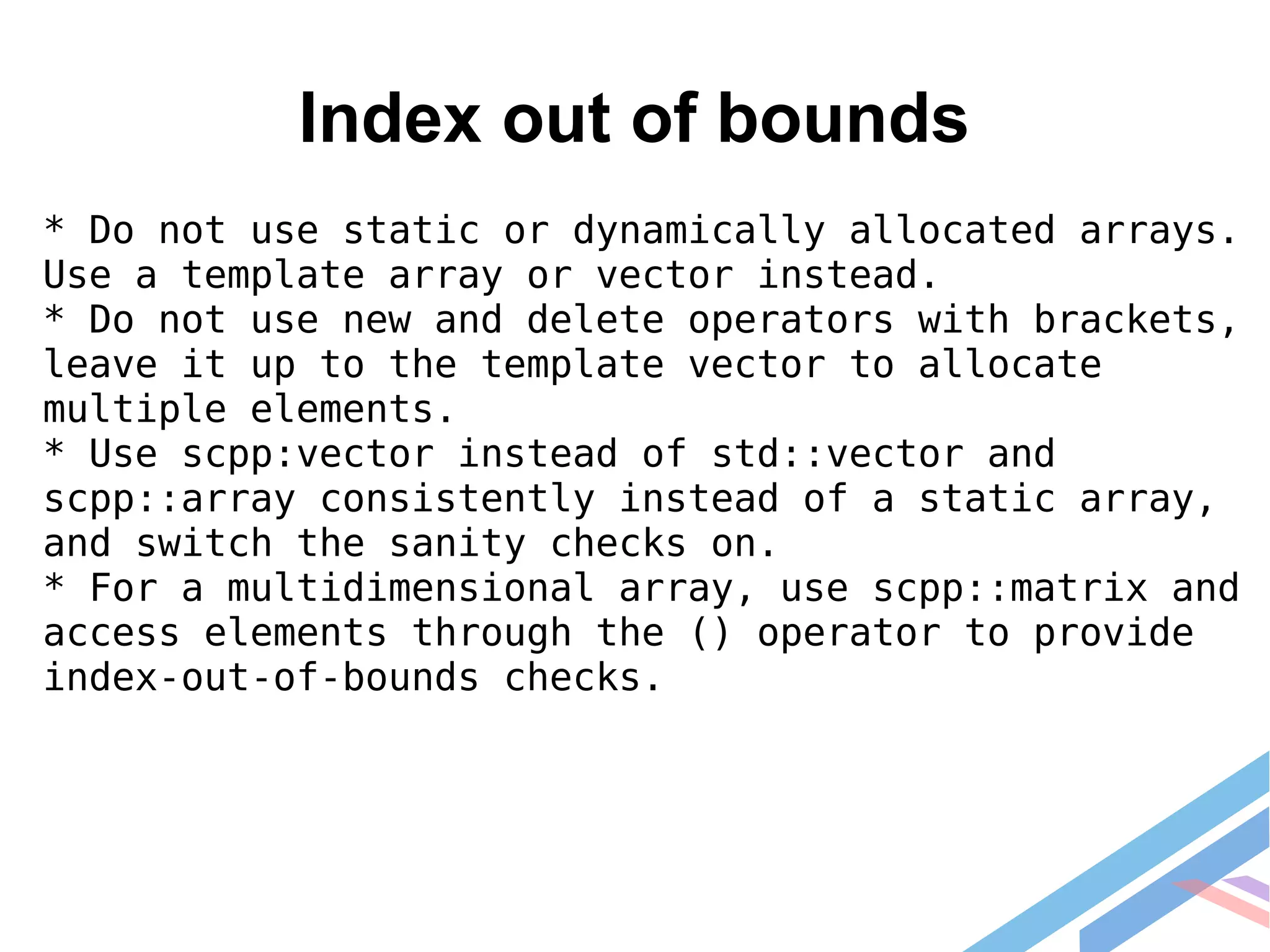
![Pointer arithmetic
vector<int> v;
for (int i=0; i<10; i++)
v.push_back(i);
int *ptr = &v[3];
cout << “Element: “ << (*ptr) << endl;
cout << “Address: “ << ptr << endl;
cout << “Adding more elements” << endl;
for (int i=0; i<10; i++)
v.push_back(i*10);
cout << “Element: “ << (*ptr) << endl;
cout << “Address: “ << &v[3] << endl;
Element: 3
Address: 0x1001000cc
Adding more elements
Element: 3
Address: 0x10010028c](https://image.slidesharecdn.com/c-180314100926/75/C-Secure-Programming-9-2048.jpg)
![Pointer arithmetic
vector<int> v;
for (int i=0; i<10; i++)
v.push_back(i);
int* ptr = &v[3];
same as
int& ptr = v[3];
vector<int>::const_iterator new1 = v.begin;
- this has the same issue as the previous
example
The same is true for almost all STL and STL like
containers.
hash_set & hash_map are also the same](https://image.slidesharecdn.com/c-180314100926/75/C-Secure-Programming-10-2048.jpg)
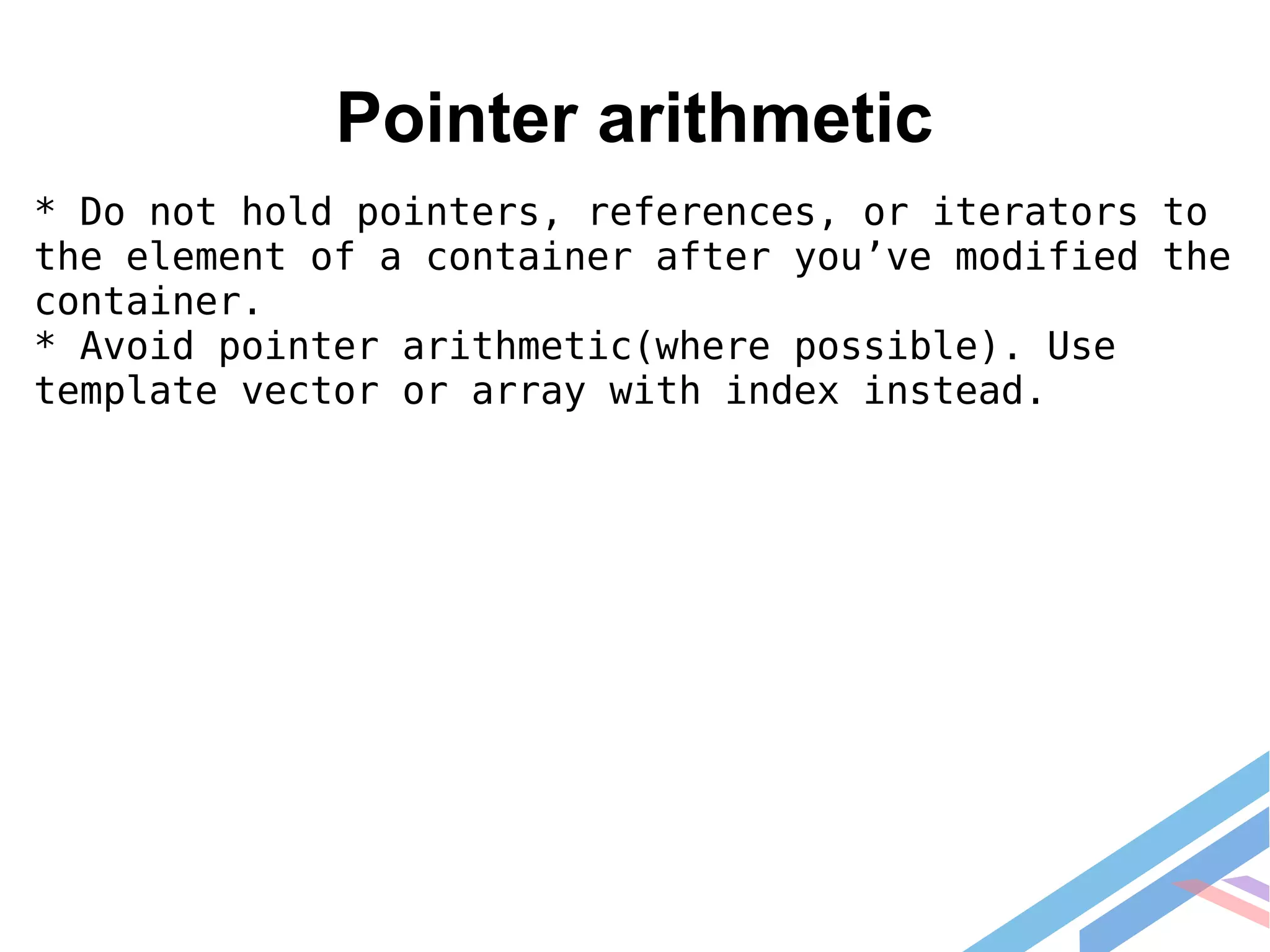
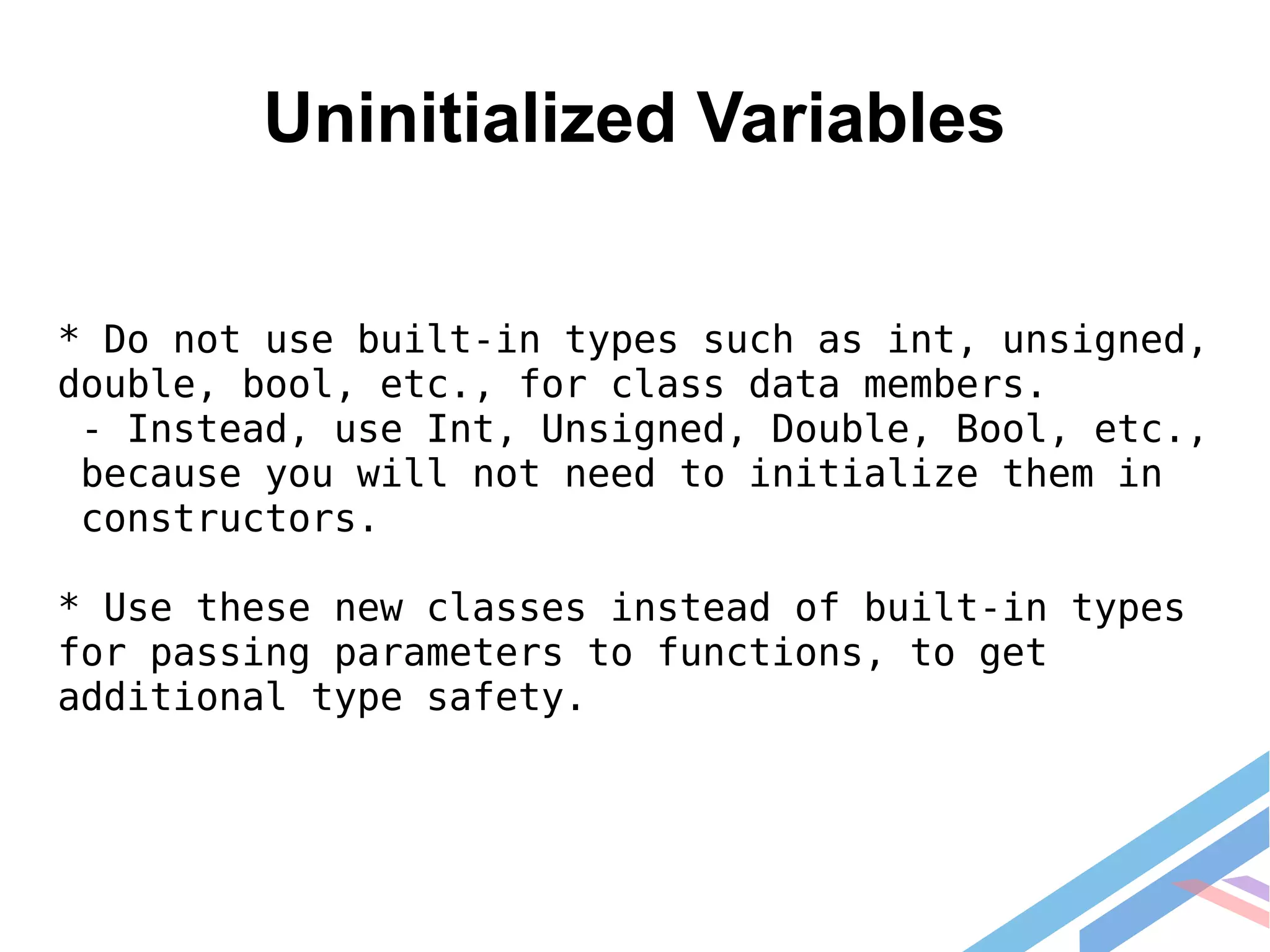
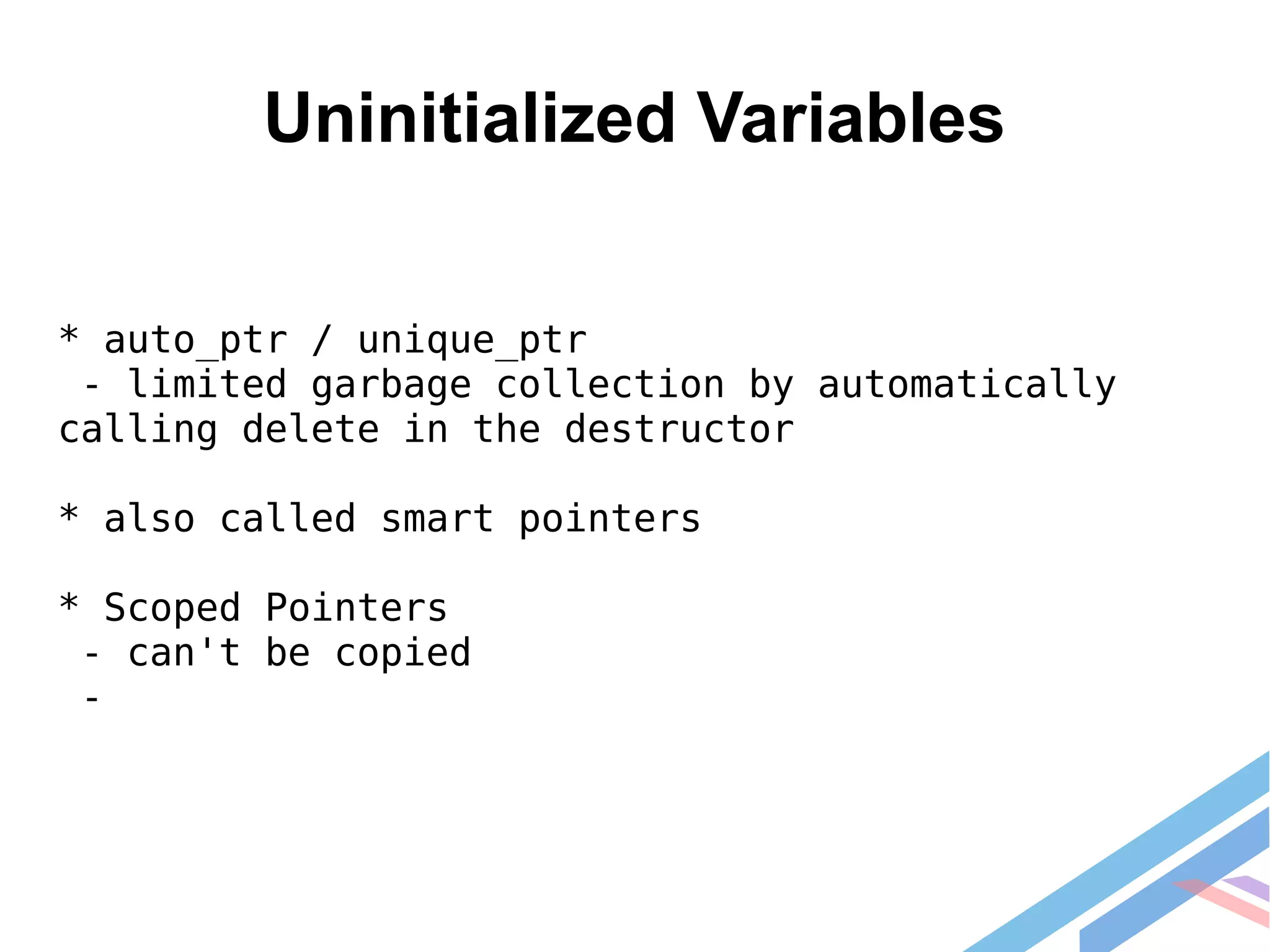
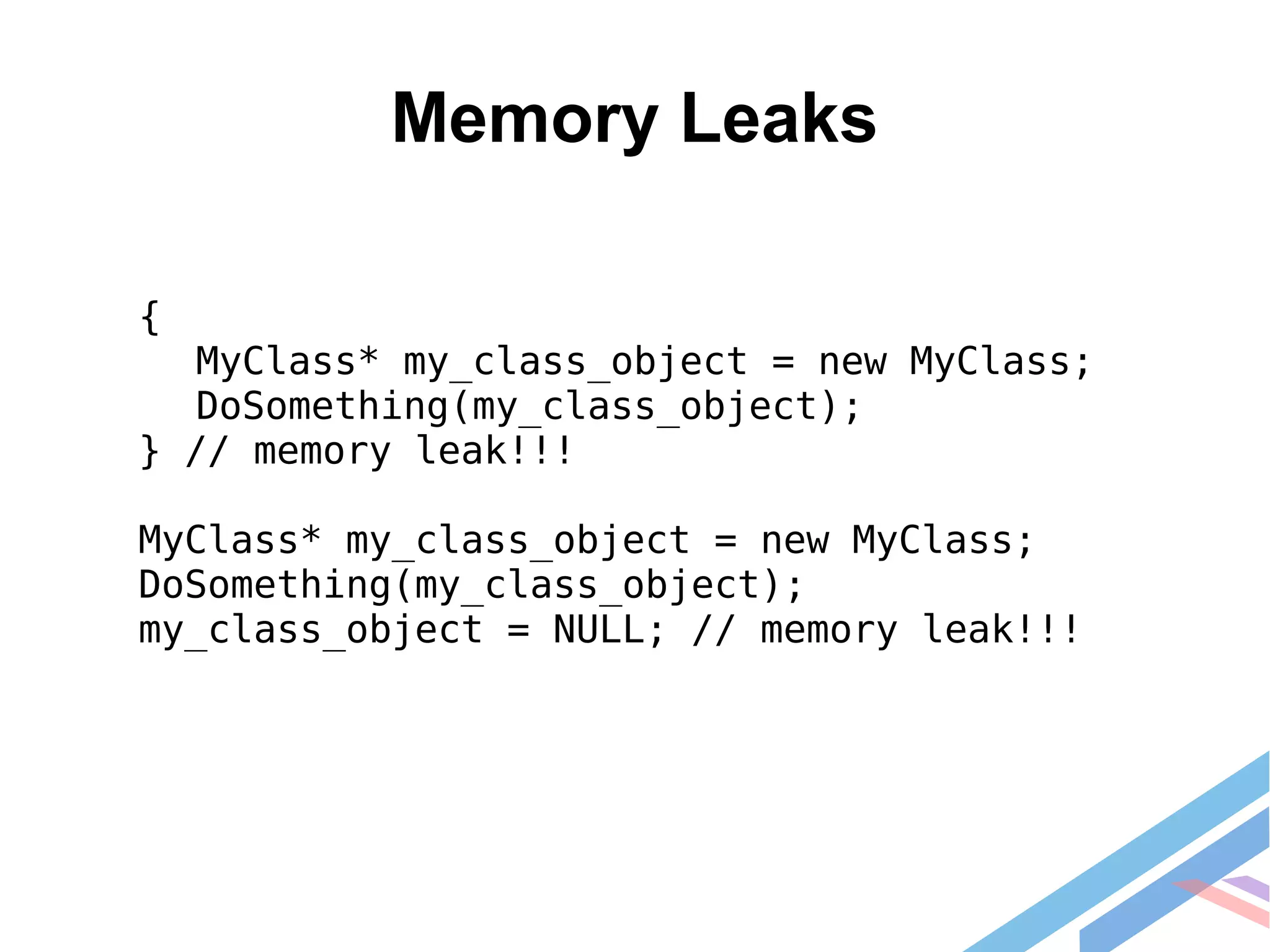
![Memory Leaks
T* dynamic_array = new T[n];
delete T;](https://image.slidesharecdn.com/c-180314100926/75/C-Secure-Programming-15-2048.jpg)
![Memory Leaks
T* dynamic_array = new T[n];
delete T;
but had to be:
delete [] T;](https://image.slidesharecdn.com/c-180314100926/75/C-Secure-Programming-16-2048.jpg)
